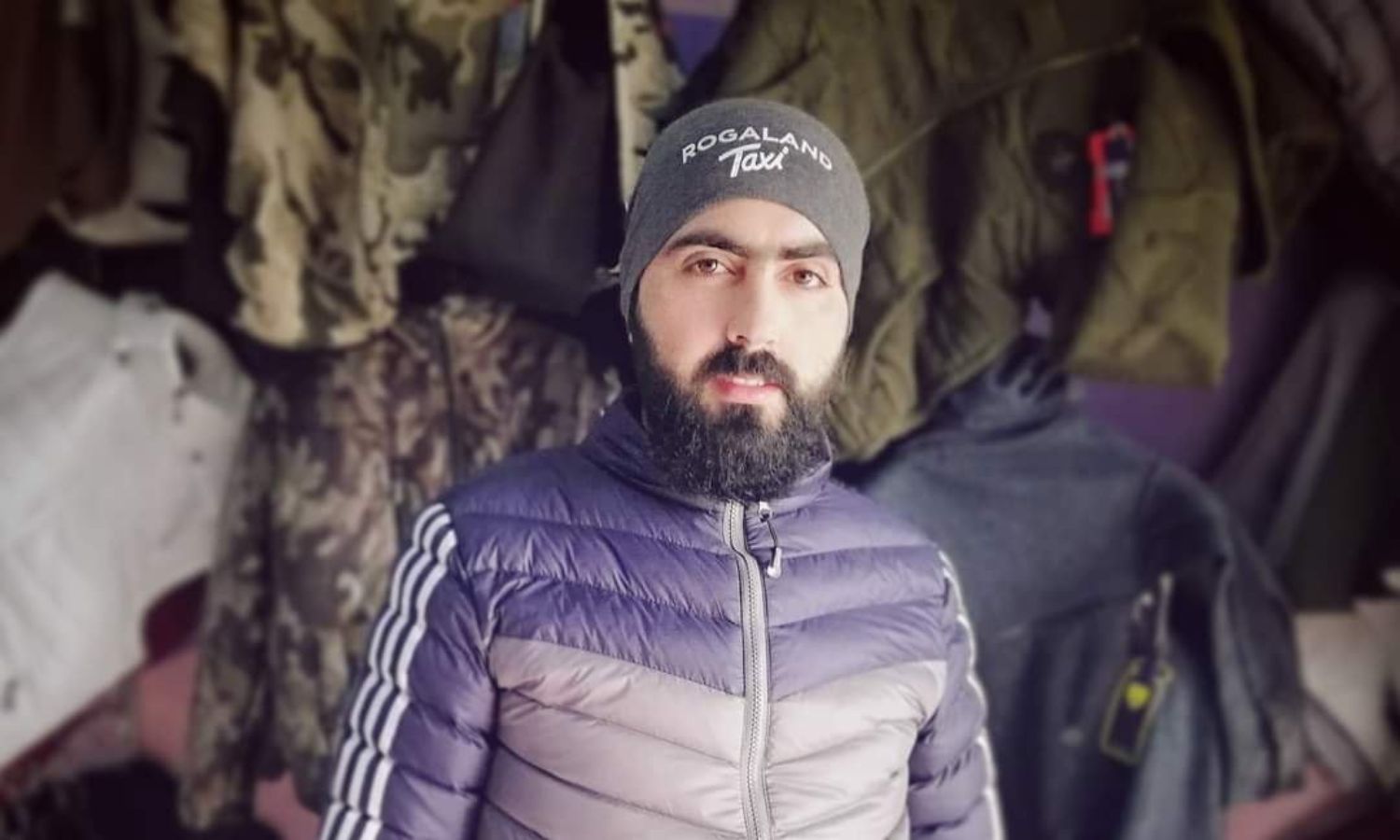



After leaving the French consulate in Beirut following an interview that was to decide his travel to France, Lebanese security forces arrested Syrian media activist Muhannad al-Zoubi on April 24.
As of today, Monday, April 29, calls continue for the release of al-Zoubi, originally from the city of Tafas in the western countryside of Daraa.
Ayman Abu Nuqta, spokesperson for the Horan Free League, told Enab Baladi that Muhannad al-Zoubi had an oral interview at the French Consulate building in Beirut from 2 to 4 PM on April 24. After the interview, while on his way home, he was stopped and arrested by a patrol from the Information Branch.
Upon hearing of his arrest and verifying his whereabouts within the Information Branch, the Horan Free League began working with Lebanese lawyer Diala Shihada, who visited him and confirmed his well-being. She met with the branch director, Brigadier General Khaled Hammoud and received promises that al-Zoubi would be released within the next two days, according to Abu Nuqta.
Abu Nuqta added that the Horan Free League fears the possibility of al-Zoubi being handed over to the Syrian regime, given his opposition activities and coverage of regime violations against civilians, and expressed concerns that the threat of arrest haunts all activists in Lebanon.
Al-Zoubi was the first activist from the Horan Free League to be arrested in Lebanon.
Journalists and media professionals are demanding al-Zoubi’s release and the assurance of his safety.
Al-Zoubi worked as a media professional in Daraa province and was a correspondent for the Horan Free League, a local news network that has been covering news from the Daraa province for over a decade, with correspondents in most regions of the province.
Al-Zoubi fled to Lebanon via smuggling routes as he was wanted by the regime forces, making his temporary presence there susceptible to arrest at any moment.
Wanted individuals by the regime forces resort to traveling to Lebanon via non-official routes (smuggling ways) since it is the closest to Syria and shares intertwined land borders.
Turkey, Jordan, and Iraq strictly control their borders, while Syrian officials maintain strong relationships with Lebanese operatives who facilitate the entry of Syrians into Lebanon in exchange for monetary compensation.
Travel to Lebanon is less costly than trying to move to other countries, as the cost of smuggling a person there is less than 300 US dollars, while reaching Turkey via smuggling requires at least 2000 dollars.
Activists, whether media professionals or civilians working in humanitarian fields, are offered travel grants to France, with interviews being held at its embassy in Lebanon.
Syrians in Lebanon face ongoing restrictions, which worsened after the killing of a coordinator for the Lebanese Forces party, named Pascal Salameh, with the Lebanese authorities accusing Syrians of the murder on April 9.
On April 25, Human Rights Watch (HRW) issued a statement saying Lebanese authorities have detained Syrians over the past months, tortured them, and forcibly returned them to Syria.
The organization documented the Lebanese Army and the General Security Directorate forcibly returning Syrians and handing them over to the regime during the first three months of 2024, including a defected military officer and a Syrian opponent. Additionally, a Syrian was briefly detained for participating in pro-Gaza demonstrations.
According to a statement by the United Nations, Lebanon hosts 785,000 Syrian refugees, referred to by the Lebanese authorities as “displaced,” while the Lebanese authorities report different figures, the highest of which reaches 2 million Syrians.
if you think the article contain wrong information or you have additional details Send Correction